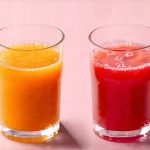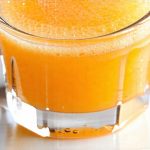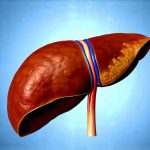The liver is arguably one of the most vital organs in the human body, silently working behind the scenes to perform over 500 essential functions. It’s our primary detoxification center, filtering toxins from the blood, processing nutrients from food, and regulating blood sugar levels. Often overlooked until problems arise, maintaining a healthy liver isn’t about drastic cleanses or restrictive diets; it’s about cultivating sustainable habits that support its natural processes. Modern lifestyles – characterized by processed foods, environmental pollutants, and chronic stress – place an immense burden on this resilient organ, making proactive care more crucial than ever before.
The concept of “liver cleansing” often conjures images of extreme juice fasts or herbal concoctions. However, a truly effective approach to liver health focuses on empowering the body’s innate detoxification mechanisms through consistent lifestyle choices. This isn’t about shocking the system; it’s about providing the building blocks and minimizing the stressors that allow the liver to function optimally. Think of it as supporting your liver in its existing work, rather than attempting a dramatic overhaul. The goal is long-term wellness, not quick fixes.
Dietary Strategies for Liver Support
The food we consume directly impacts our liver’s workload. A diet rich in whole foods and limited in processed items is foundational to liver health. Focusing on nutrient density provides the building blocks needed for detoxification processes and minimizes the toxins the liver needs to process. Specifically, incorporating foods known to support liver function can make a significant difference. These include leafy green vegetables (like spinach and kale), cruciferous vegetables (broccoli, cauliflower, Brussels sprouts) which contain compounds that aid detoxification pathways, beets containing betaine which supports bile flow, garlic and onions rich in sulfur-containing compounds vital for phase two detoxification, and berries packed with antioxidants to combat oxidative stress.
Minimizing inflammatory foods is equally important. Excessive sugar intake, particularly fructose found in sweetened beverages and processed snacks, can lead to non-alcoholic fatty liver disease (NAFLD). Similarly, highly processed foods, excessive alcohol consumption, and saturated/trans fats all place undue stress on the liver. A diet prioritizing lean protein sources, healthy fats (avocados, olive oil, nuts, seeds), and complex carbohydrates provides sustained energy without overwhelming the organ’s capacity. Diet is often the first and most impactful step towards a healthier liver.
Hydration plays a critical role too. Water is essential for all bodily functions, including flushing out toxins via the kidneys and supporting optimal liver function. Aim for at least eight glasses of water daily – more if you are physically active or live in a hot climate. Herbal teas like dandelion root tea (in moderation) have traditionally been used to support liver health due to their mild diuretic properties, but it’s vital to consult with a healthcare professional before incorporating them into your routine.
Optimizing Gut Health for Liver Detoxification
The gut and the liver are intimately connected – often referred to as the “gut-liver axis.” A healthy gut microbiome is essential for proper detoxification, as it reduces the burden on the liver by processing toxins before they reach the organ. An imbalance in gut bacteria (dysbiosis) can lead to increased intestinal permeability (“leaky gut”), allowing toxins to enter the bloodstream and forcing the liver to work harder.
- Probiotic-rich foods: Incorporate fermented foods like yogurt, kefir, sauerkraut, kimchi, and kombucha into your diet to support a healthy gut microbiome.
- Prebiotic-rich foods: Feed beneficial bacteria with prebiotic fibers found in onions, garlic, leeks, asparagus, bananas, oats, and apples.
- Fiber intake: A high-fiber diet promotes regular bowel movements, eliminating toxins efficiently. Aim for 25-30 grams of fiber per day from sources like whole grains, fruits, vegetables, and legumes.
Addressing gut health isn’t just about adding probiotics; it’s also about minimizing factors that disrupt the microbiome. Excessive antibiotic use, chronic stress, and a diet high in processed foods can all negatively impact gut bacteria. A thriving gut contributes significantly to a healthier liver.
Managing Stress for Liver Wellness
Chronic stress has a profound impact on overall health, including liver function. When we’re stressed, our bodies release cortisol, a hormone that, while necessary for survival, can disrupt metabolic processes and increase inflammation. Elevated cortisol levels can lead to insulin resistance, increased fat storage in the liver (contributing to NAFLD), and impaired detoxification pathways.
- Mindfulness practices: Incorporate stress-reducing techniques like meditation, yoga, deep breathing exercises, or spending time in nature.
- Adequate sleep: Aim for 7-9 hours of quality sleep per night to allow your body to repair and restore itself. Sleep deprivation exacerbates stress and impacts liver function.
- Regular exercise: Physical activity is a powerful stress reliever and improves overall health, including liver function.
Finding healthy ways to manage stress isn’t just about feeling calmer; it’s about protecting your liver from the damaging effects of chronic cortisol exposure. Stress management is an often-overlooked but critical component of liver care.
Limiting Exposure to Environmental Toxins
We are constantly exposed to toxins in our environment, from pesticides in food and chemicals in household cleaning products to pollutants in the air we breathe. While it’s impossible to eliminate all toxin exposure, minimizing it can significantly reduce the burden on your liver.
- Choose organic foods whenever possible: This reduces pesticide intake.
- Opt for natural cleaning products: Avoid harsh chemicals found in conventional cleaners.
- Filter your water: Removes contaminants and improves water quality.
- Reduce plastic use: Many plastics contain BPA and phthalates, which can disrupt hormonal balance and impact liver health. Use glass or stainless steel alternatives when feasible.
The liver is constantly working to filter these toxins, so reducing exposure allows it to function more efficiently. It’s about making mindful choices in our daily lives to create a less toxic environment for ourselves. Proactive toxin reduction supports the liver’s natural detoxification processes.
Disclaimer: This article provides general information on liver health and lifestyle habits that may support its well-being. It is not intended as medical advice, diagnosis, or treatment. Always consult with a qualified healthcare professional before making any changes to your diet, exercise routine, or health regimen. Individuals with existing liver conditions should follow the guidance of their physician.


















